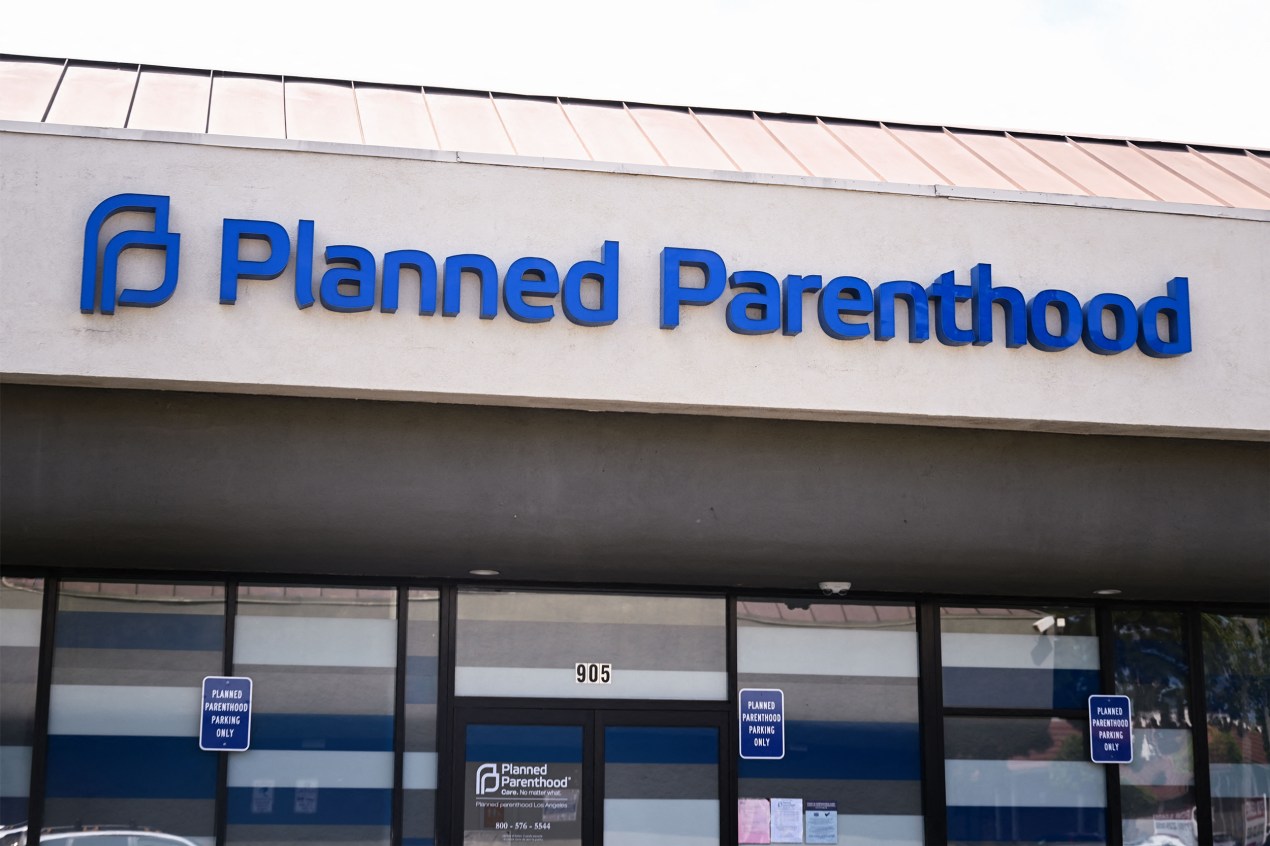Planned Parenthood is preparing a seven-figure campaign blitz to oust GOP incumbents from California congressional seats, part of a larger national effort by the reproductive rights group to prevent a Republican majority from passing abortion restrictions, including a national ban.
Planned Parenthood Affiliates of California is targeting eight districts where voters largely backed Republicans in 2022 even as they endorsed a constitutional amendment enshrining access to abortion and contraceptives. The advertising plan goes negative by focusing on each incumbent’s record of voting against access to abortion and contraceptives. In the past, the group riffed on the “Burn Book” from the 2004 comedy “Mean Girls.”
GOP party officials said they were confident voters in those districts would look at the bigger picture and return Republicans to office. And one incumbent dismissed the notion that there’s a threat to reproductive care in the Golden State.
“Access to abortion and other reproductive care aren’t going anywhere in California,” said Calvin Moore, a spokesperson for Rep. Ken Calvert of Riverside County. “Congressman Calvert believes this is a deeply personal issue that should be left up to the states and opposes a national abortion ban.”
With 52 seats, liberal California could tip the scales for control of the U.S. House this fall. But Planned Parenthood has its work cut out for it since seven of the seats it is targeting are currently held by Republicans and only one — to be vacated by Democrat Katie Porter after an unsuccessful bid for U.S. Senate — is open.
According to The Cook Political Report, four are toss-up races; Rep. Michelle Steel’s district, mostly in Orange County, leans Republican; and Reps. Kevin Kiley, who represents a district along California’s eastern border, and Young Kim, who represents a district east of Anaheim, are likely to win.
Abortion has proved to be a bigger issue for many voters than political analysts may have anticipated. “In many of these seats, I think voters care about their reproductive freedoms and they resonate with our message, so we think we’re going to win,” said Jodi Hicks, CEO and president of Planned Parenthood Affiliates of California.
While Planned Parenthood is focused on House races, Hicks said it is also monitoring neighboring states. One California branch, Planned Parenthood Mar Monte, stretches into Reno, Nevada, and its advocacy arm has been actively supporting a Nevada ballot initiative that would constitutionally protect Nevadans’ right to abortion.
Nationally, the group plans to spend $40 million in at least eight states: Arizona, Georgia, Montana, New Hampshire, New York, North Carolina, Pennsylvania, and Wisconsin.
In California, Planned Parenthood aims to highlight the record of members of Congress like Kiley, who voted to potentially impose prison sentences on doctors who provide abortions. Calvert, Kim, Steel, and Reps. Mike Garcia, of northern Los Angeles County, and David Valadao, of the Central Valley, voted against access to birth control. And Garcia, Valadao, and Steel co-sponsored a bill to effectively ban abortions nationwide.
Assembly Republican leader James Gallagher, who is on the California Republican Party board, said many Californians don’t trust Democrats to protect their health care rights even if political leaders support abortion being legal, pointing out that under Democrats maternity wards have closed and hospitals have filed for bankruptcy.
“Democrats don’t really have a great record in California right now on women’s health care issues,” Gallagher said. “So I think it just rings a little bit hollow.”
According to a February KFF poll on abortion as a 2024 election issue, about half of Republican voters who support it being legal trust their own party more on the issue, while 8% trust the Democratic Party more. One in three said they don’t trust either political party on the issue.
Ivy Cargile, an associate professor of political science at California State University-Bakersfield, said it may be tricky to galvanize voters on the issue since many Californians are confident their reproductive rights are protected in the deep-blue state. “Voters might be thinking that California is so progressive, so reproductive rights are safe,” Cargile said. “But federal law does trump state law.”
Planned Parenthood will impress upon Central Valley and Southern California voters that remaining loyal to Republicans risks a national abortion ban. A large part of its advertising campaign will focus on connecting the dots for voters, arguing support for reproductive rights requires voting for Democratic candidates.
“California is so pivotal to ensure that we’re winning at the national level,” Hicks said.
Gallagher said the GOP’s focus on inflation and public safety will resonate with voters in California’s more conservative districts. He and Calvert predict the races will mirror what happened in 2022: Though voters backed the constitutional amendment for reproductive rights, they supported incumbent Republicans, even those who were anti-abortion.
KFF Health News spoke to six voters in Garcia’s district who say they support access to abortion but typically vote for Republican candidates. All six planned to vote for Garcia’s reelection.
Rose Large of Santa Clarita said that while she supports abortion rights, she has deeper concerns with Democratic Party leadership on issues such as the economy and border control. Others mentioned fears of rising crime and wanting to protect Second Amendment rights.
Asked if she believed Planned Parenthood’s campaign would sway her or voters in her neighborhood, Large replied, “Personally, I don’t. No.”
This article was produced by KFF Health News, which publishes California Healthline, an editorially independent service of the California Health Care Foundation.







